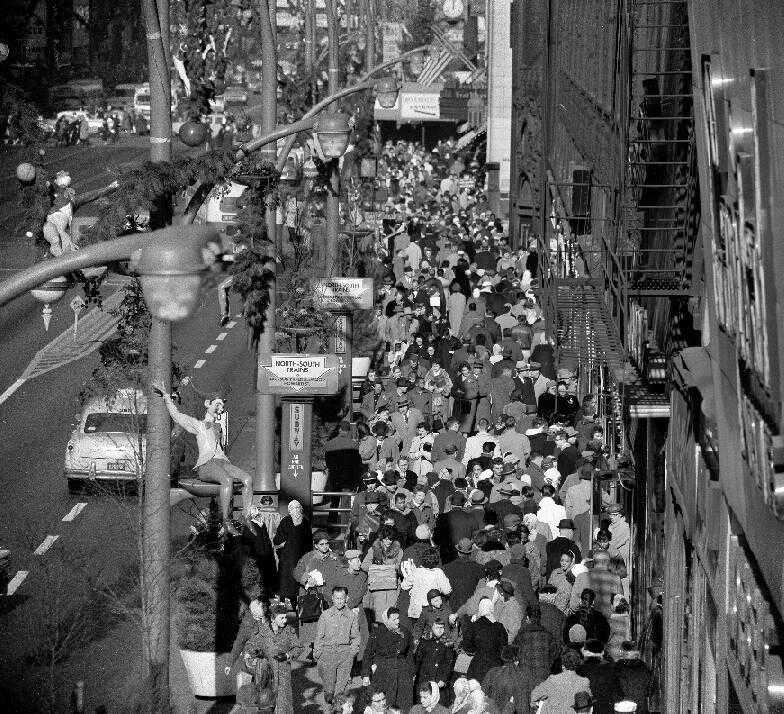
Economic Success and Failure: Causes

Figure 1.--Many fear basing the economy on the consumer and market forces. Here we see Christmas shopers on State Street in Chicago duruing 1955. The Great Depression undermined confidence in free market capitalism. Many in Europe and the developing countries bought the idea that socialist policies and an expanded Government could create wealth and provide economic security. Increasingly in now being understood that the single most important factor in building a creative, affluent economy is economic freedom.
|
|
The question arises as to why economic conditions are so varied around the world. The Communists claimed it was because evil capitalists were exploiting their own workers as well Third World countries. Many people bought this and other Socialist teants, especially on the heels of the Great Depression. The only thing is that in the later part of the decade several surprising economic trends emerged: 1) European countries became richer after losing their colonies, 2) Many colonies became poorer after independence, 3) The Soviet Union and its satellites as well as China and other Communist countries were unable to compete economically with the Western capitalist countries, 4) Free market reforms in China, India, and other countries turned torpid economies into engines for economic growth, and 5) Socialist policies in Western Europe and America are being exposed as being both unsustainable and counter productive. Others argued that natural resources were critical. Again we see countries disproving this thesis, Japan, Taiwan, South Korea, Singapore, Taiwan, and other countries proved that suceesful ecomomies can be built by countries without notable resources if the country develops its human capital. Increasingly it is becoming obvious, much to the dismay of Socialist acolytes around the world is that the key to economic success is economic freedom. And to test out that theory, one has to compare indices of economic feeedom with actual economic conditions. The Wall Street Journal andThe Heritage Foundation, a respected free market think tank, have tracked the economic freedom trends around the world with its Index of Economic Freedom. They define economic freedom as "the fundamental right of every human to control his or her own labor and property. In an economically free society, individuals are free to work, produce, consume, and invest in any way they please, with that freedom both protected by the state and unconstrained by the state. In economically free societies, governments allow labor, capital and goods to move freely, and refrain from coercion or constraint of liberty beyond the extent necessary to protect and maintain liberty itself." They measure ten components of economic freedom, assigning a grade in each using a scale from 0 to 100, where 100 represents the maximum freedom. The ten component scores are then averaged to give an overall economic freedom score for each country. You can go to their site to see the country rakings and a detailed duiscussion of conditions in each country. While one can debate the precise findings and individual country assessments, the basic findings are unmistakable. Countries high on the economic freedom list are successful countries with high living standards. Countries ranking low on the economic freedom list are countries with failed economies with a population condemned to poverty. What the index does not measure very well is the ability of countries with oil-based economies to avoid freeing their economies. A variety of cultural factors can also affect economic conditions.
CIH

Navigate the Children in History Website:
[Return to the Main Economic Freedom Page ]
[Return to the Main Economics Page ]
[About Us]
[Introduction]
[Biographies]
[Chronology]
[Climatology]
[Clothing]
[Disease and Health]
[Economics]
[Freedom]
[Geography]
[History]
[Human Nature]
[Law]
[Nationalism]
[Presidents]
[Religion]
[Royalty]
[Science]
[Social Class]
[Bibliographies]
[Contributions]
[FAQs]
[Glossaries]
[Images]
[Links]
[Registration]
[Tools]
[Children in History Home]
Created: 12:33 AM 1/19/2011
Last updated: 12:33 AM 1/19/2011



